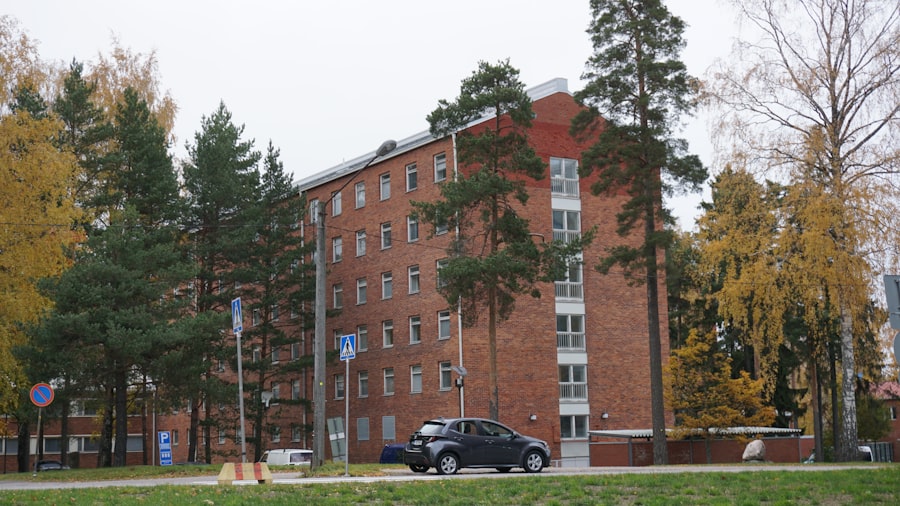As you navigate the landscape of higher education, you may find that the rising costs of student housing are becoming an increasingly pressing issue. These escalating expenses can significantly affect your educational experience, often forcing you to make difficult choices between housing and other essential needs, such as tuition, textbooks, and daily living expenses. The financial strain can lead to a decline in academic performance, as the stress of managing these costs weighs heavily on your mind.
When you are preoccupied with financial worries, it becomes challenging to focus on your studies, participate in extracurricular activities, or engage fully in campus life. Moreover, the impact of high housing costs extends beyond individual students; it can also affect the overall educational environment. When students are burdened by financial stress, they may be less likely to engage in collaborative learning opportunities or form meaningful connections with peers.
This can lead to a less vibrant campus culture, where students feel isolated and disconnected from one another. Ultimately, the rising costs of student housing can create a ripple effect that diminishes the quality of education and the college experience for everyone involved.
Key Takeaways
- Rising student housing costs significantly impact students’ access to education and overall financial stability.
- Location and limited affordable housing options are major contributors to the increase in student housing expenses.
- High housing costs place a heavy financial burden on students and their families, affecting mental health and academic performance.
- Universities, governments, and advocacy groups play crucial roles in developing strategies and policies to reduce housing costs.
- Long-term consequences of unaffordable student housing include increased debt and reduced opportunities for future economic mobility.
Factors Contributing to the Increase in Student Housing Costs
Several factors contribute to the rising costs of student housing, and understanding these elements can help you navigate this complex issue. One significant factor is the increasing demand for housing in college towns. As more students enroll in universities and colleges, the competition for available housing intensifies.
This surge in demand often leads landlords to raise rents, knowing that students have limited options and are willing to pay a premium for convenience and proximity to campus. Additionally, the rising costs of construction and maintenance play a crucial role in driving up housing prices. As materials and labor become more expensive, landlords may pass these costs onto tenants.
Furthermore, many universities are investing in luxury student housing developments that cater to affluent students, which can skew the overall market and make it more challenging for those seeking affordable options. As you consider your housing choices, it’s essential to be aware of these market dynamics and how they may impact your budget.
The Financial Burden on Students and Their Families

The financial burden of rising student housing costs can be overwhelming for both you and your family. Many students rely on financial aid, scholarships, or parental support to cover their educational expenses, but when housing costs soar, it can strain these resources. You may find yourself taking on part-time jobs or even full-time work while attending classes, which can lead to exhaustion and burnout.
Balancing work and study commitments can be a daunting task, leaving little time for socializing or self-care. Moreover, the financial strain can extend beyond your immediate needs. Families may feel compelled to take on additional debt or dip into savings to help support your education.
This can create long-term financial repercussions for both you and your loved ones. The pressure to succeed academically while managing these financial challenges can lead to feelings of anxiety and inadequacy, further complicating your college experience.
The Role of Location in Student Housing Costs
| Location | Average Monthly Rent | Distance to Campus (miles) | Public Transport Availability | Average Utility Costs | Proximity to Amenities |
|---|---|---|---|---|---|
| Urban City Center | 1200 | 0.5 | High | 150 | Very High |
| Suburban Area | 800 | 5 | Moderate | 120 | Moderate |
| Rural Area | 600 | 15 | Low | 100 | Low |
| College Campus Dormitory | 1000 | 0 | High | Included | High |
Location plays a pivotal role in determining student housing costs, and as you search for accommodations, you’ll quickly realize that proximity to campus often comes at a premium. Living close to your university can provide significant advantages, such as reduced commute times and easier access to campus resources.
In contrast, opting for housing further away from campus may offer more affordable options but can introduce its own set of challenges. Longer commutes can lead to increased transportation costs and time lost that could be spent studying or engaging in campus activities. As you weigh your options, it’s essential to consider not only the financial implications but also how your living situation will impact your overall college experience.
The Lack of Affordable Housing Options for Students
The lack of affordable housing options is a significant concern for many students today. As you explore potential living arrangements, you may find that the available choices are often limited and do not align with your budgetary constraints. Many landlords prioritize profit over affordability, leading to a scarcity of reasonably priced accommodations that cater specifically to students.
This lack of affordable options can force you into difficult situations, such as settling for subpar living conditions or sharing cramped spaces with multiple roommates. The pressure to find suitable housing can be overwhelming, especially when combined with the demands of academic life. As you navigate this challenging landscape, it’s crucial to advocate for more affordable housing initiatives within your university community and beyond.
Strategies for Managing and Reducing Student Housing Costs

To alleviate the financial burden of rising student housing costs, you may want to explore various strategies for managing your expenses effectively. One approach is to consider alternative living arrangements, such as co-op housing or shared apartments with friends or fellow students. By pooling resources and sharing rent, you can significantly reduce individual costs while fostering a sense of community.
Additionally, researching off-campus housing options well in advance can help you identify more affordable choices before prices escalate further. Utilizing online platforms that specialize in student housing can also provide valuable insights into available listings and rental trends in your area. By being proactive and resourceful in your search for housing, you can better navigate the challenges posed by rising costs.
The Effect of Rising Student Housing Costs on Mental Health
The mental health implications of rising student housing costs cannot be overlooked.
The constant worry about making rent payments or finding suitable accommodations can take a toll on your emotional well-being and overall quality of life.
Moreover, the pressure to maintain academic performance while managing these stressors can exacerbate feelings of inadequacy or overwhelm. It’s essential to recognize that you are not alone in facing these challenges; many students share similar experiences. Seeking support from campus mental health resources or connecting with peers who understand your situation can provide valuable relief and help you develop coping strategies.
The Long-term Consequences of High Student Housing Costs
The long-term consequences of high student housing costs extend far beyond your college years. Graduating with significant debt due to inflated housing expenses can hinder your ability to achieve financial stability post-graduation. You may find yourself delaying important life milestones such as purchasing a home or starting a family due to the lingering effects of student debt.
Additionally, high housing costs can influence career choices as well. If you graduate with substantial debt from both tuition and housing expenses, you may feel pressured to pursue higher-paying jobs that may not align with your passions or interests. This shift in focus can lead to dissatisfaction in your career path and impact your overall happiness in the long run.
The Role of Universities and Colleges in Addressing Student Housing Costs
Universities and colleges have a critical role to play in addressing the issue of rising student housing costs. As institutions dedicated to supporting student success, they should prioritize creating affordable housing options that cater specifically to their student populations. This could involve investing in new developments that offer reasonable rent prices or partnering with local landlords to ensure that students have access to safe and affordable accommodations.
Furthermore, universities should actively engage with students to understand their needs and concerns regarding housing. By fostering open communication channels and involving students in decision-making processes related to housing policies, institutions can create a more supportive environment that prioritizes affordability and accessibility.
The Need for Government Intervention in Student Housing Costs
Government intervention is essential in addressing the growing crisis of student housing costs. Policymakers must recognize the impact that rising rents have on students’ ability to access higher education and advocate for measures that promote affordable housing initiatives. This could include providing funding for low-income housing projects or implementing rent control policies that protect students from exorbitant price increases.
Additionally, government support for public transportation infrastructure can help alleviate some of the burdens associated with commuting from more affordable areas. By investing in accessible transportation options, students will have greater flexibility in choosing their living arrangements without sacrificing their educational opportunities.
The Importance of Advocacy and Awareness in Addressing Rising Student Housing Costs
Advocacy and awareness are crucial components in addressing the issue of rising student housing costs. As a student, you have the power to raise awareness about this pressing concern within your community and beyond. Engaging in discussions about affordable housing initiatives on campus or participating in advocacy groups can amplify your voice and encourage others to join the cause.
By sharing your experiences and challenges related to housing costs, you contribute to a broader dialogue that highlights the need for change. Together with fellow students, faculty members, and community advocates, you can work towards creating a more equitable landscape for all students seeking higher education opportunities without the burden of exorbitant housing expenses. Your efforts can pave the way for future generations of students who deserve access to affordable education without compromising their living conditions.
The rising costs of student housing have become a significant concern for many students and their families, as they navigate the financial challenges of higher education. A related article that delves into the factors contributing to these increases can be found at
